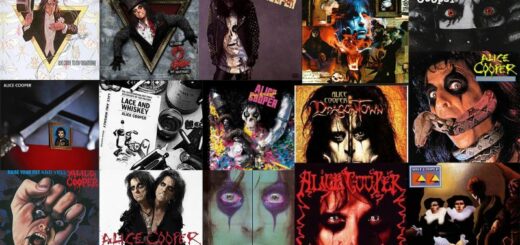List of Fleetwood Mac Albums in Order of Release
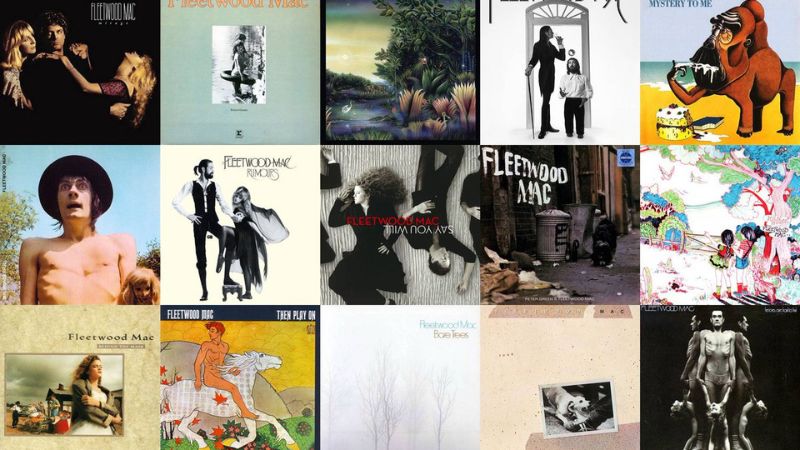
Fleetwood Mac Albums in Order: From their beginnings in 1967 with guitarist and singer Peter Green, Fleetwood Mac’s illustrious career has been marked by evolution and success.
Fleetwood Mac, a legendary British-American rock band, embarked on their musical journey in London in 1967 under the leadership of guitarist and singer Peter Green. With the enlistment of Mick Fleetwood, Jeremy Spencer, and Bob Brunning, the band made their initial foray into the music scene, later witnessing John McVie replacing Brunning.
Their early years were marked by their identity as a British blues band, yet they achieved significant success with hits like “Albatross” in 1968 and “Man of the World,” “Oh Well,” and “The Green Manalishi (With the Two Prong Crown)” in subsequent years. After several lineup changes, the band experienced a turning point in 1975 when Lindsey Buckingham and Stevie Nicks joined, giving Fleetwood Mac a distinctive pop rock sound. Their album “Rumours” became a monumental success, selling over 40 million copies globally and winning a Grammy Award for Album of the Year. Despite personal challenges, the band continued to create remarkable music.
Over the years, they faced numerous lineup shifts and reunions, solidifying their status as one of the world’s best-selling bands with over 120 million records sold. Their contributions to music were recognized with accolades such as a star on the Hollywood Walk of Fame, induction into the Rock and Roll Hall of Fame, and the Brit Award for Outstanding Contribution to Music. The band’s enduring legacy is a testament to their artistic achievements and impact on the music industry. So, if you are a die heart fan of Fleetwood Mac Albums then check out here we have list of Fleetwood Mac albums in order of release so far.
All Fleetwood Mac Albums Available on: Apple Music
How many albums does Fleetwood Mac have?
The discography of British-American band Fleetwood Mac consists of 18 studio albums, 10 live albums, 23 compilation albums, one extended play and 62 singles.
All Fleetwood Mac Albums in Order: Check Out The List of Fleetwood Mac Albums in Order of Release Here!
Here is the list of Fleetwood Mac Album in Order of Release Date:
- Fleetwood Mac — February 24, 1968
- Mr. Wonderful — August 23, 1968
- Then Play On — September 19, 1969
- Fleetwood Mac in Chicago — December 5, 1969
- Kiln House — September 18, 1970
- Future Games — September 3, 1971
- Bare Trees — March 1972
- Penguin — March 1, 1973
- Mystery to Me — October 15, 1973
- Heroes Are Hard to Find — September 13, 1974
- Fleetwood Mac — July 11, 1975
- Rumours — February 4, 1977
- Tusk — October 12, 1979
- Mirage — June 18, 1982
- Tango in the Night — April 13, 1987
- Behind the Mask — April 9, 1990
- Time — October 10, 1995
- Say You Will — April 15, 2003
All Fleetwood Mac Albums List in Order
1. Fleetwood Mac (1968)

Tracks
- My Heart Beat Like a Hammer
- Merry Go Round
- Long Grey Mare
- Hellhound on My Trail
- Shake Your Moneymaker
- Looking for Somebody
- No Place to Go
- My Baby’s Good to Me
- I Loved Another Woman
- Cold Black Night
- The World Keep on Turning
- Got to Move
Fleetwood Mac, also known as Peter Green’s Fleetwood Mac, marked the debut studio release for the British blues rock band in February 1968. The album, a blend of blues covers and original compositions from guitarists Peter Green and Jeremy Spencer, featured a unique absence of keyboardist/vocalist Christine McVie. Despite the absence of a hit single, the album enjoyed immediate success in the UK, reaching No. 4 and spending 37 weeks on the charts. In the US, it reached No. 198 and sold over 150,000 copies by June 2015. The album’s expanded version can be found in The Complete Blue Horizon Sessions box set.
2. Mr. Wonderful (1968)
Tracks
- Stop Messin’ Round
- I’ve Lost My Baby
- Rollin’ Man
- Dust My Broom
- Love That Burns
- Doctor Brown
- Need Your Love Tonight
- If You Be My Baby
- Evenin’ Boogie
- Lazy Poker Blues
- Coming Home
- Trying So Hard to Forget
Mr. Wonderful is the second studio album by British blues rock band Fleetwood Mac, released on 23 August 1968. This all-blues album was broadly similar to their debut album, albeit with some changes to personnel and recording method. The album was recorded live in the studio with miked amplifiers and PA system, rather than plugged into the board.[3] A horn section was introduced and Christine Perfect (later Christine McVie) of Chicken Shack was featured on keyboards. In the US, the album was not issued under the name Mr. Wonderful, though around half of the tracks appeared on English Rose.
An expanded version of Mr. Wonderful was included in the box set The Complete Blue Horizon Sessions. The song “Lazy Poker Blues” was covered by Status Quo on their 1971 album Ma Kelly’s Greasy Spoon
3. Then Play On (1969)
Tracks
- Coming Your Way
- Closing My Eyes
- Fighting for Madge
- When You Say
- Show-Biz Blues
- Underway
- One Sunny Day
- Although the Sun Is Shining
- Rattlesnake Shake
- Without You
- Searching for Madge
- My Dream
- Like Crying
- Before the Beginning
“Then Play On,” Fleetwood Mac’s third studio album, debuted on September 19, 1969. This milestone marked their first album to feature Danny Kirwan and their last with Peter Green. Notably, Jeremy Spencer’s presence on the album was minimal. The album showcased a diverse range of styles, departing from the band’s earlier electric blues sound to incorporate folk rock, hard rock, art rock, and psychedelia. It reached No. 6 on the UK Albums Chart, continuing their streak of Top 20 LPs. The album’s title, “Then Play On,” was inspired by a line from Shakespeare’s Twelfth Night. The release marked their transition to Reprise Records, and subsequent editions included different tracklists and bonus material, making it a pivotal moment in the band’s discography.
4. Fleetwood Mac in Chicago
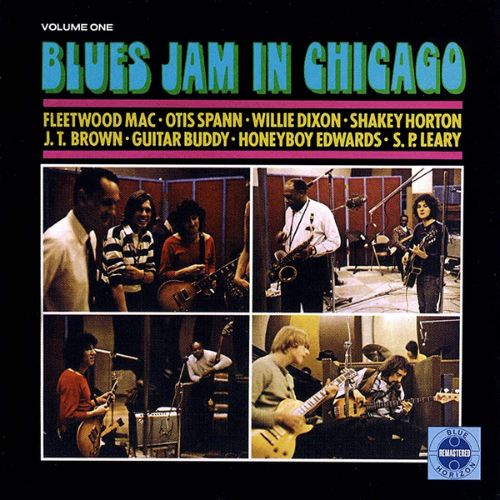
Tracks
- Watch Out
- Ooh Baby
- South Indiana
- South Indiana
- Last Night
- Red Hot Jam
- I’m Worried
- I Held My Baby Last Night
- Madison Blues
- I Can’t Hold Out
- I Need Your Love
- I Got the Blues
- World’s in a Tangle
- Talk With You
- Like It This Way
- Someday Soon Baby
- Hungry Country Girl
- Black Jack Blues
- Everyday I Have the Blues
- Rockin’ Boogie
- Sugar Mama
- Homework
“Blues Jam in Chicago” is a seminal studio recording by the British rock band Fleetwood Mac, initially released in December 1969 in two single-LP volumes. The album emerged from a recording session in early 1969 at Chess Records in Chicago, where Fleetwood Mac, then a young British blues band, collaborated with renowned Chicago blues artists who inspired them. The band’s lineup included Peter Green, Jeremy Spencer, Danny Kirwan, Mick Fleetwood, and John McVie, while legendary Chicago blues musicians such as Otis Spann, Willie Dixon, Buddy Guy, and others joined the session. In 2022, a book of Jeff Lowenthal’s photographs capturing the historic session was published, preserving this iconic moment in music history.
5. Kiln House (1970)
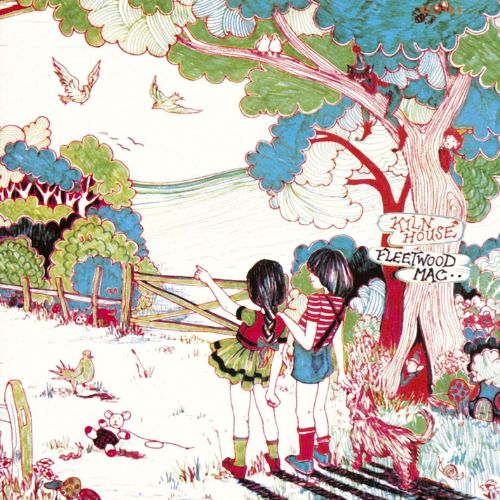
Tracks
- This Is the Rock
- Station Man
- Blood on the Floor
- Hi Ho Silver
- Jewel-Eyed Judy
- Buddy’s Song
- Earl Gray
- One Together
- Tell Me All the Things You Do
- Mission Bell
“Kiln House,” the fourth studio album by British blues rock band Fleetwood Mac, released on September 18, 1970, via Reprise Records, marks a pivotal moment in the band’s history. This album is notable as the first release following the departure of founder Peter Green. It also holds the distinction of being the last album to feature guitarist Jeremy Spencer. The album’s recording sessions saw the involvement of Christine McVie, who contributed with backing vocals, keyboards, and cover art, although she wasn’t yet a full member of the band until shortly after the album’s completion. “Kiln House” represents a transitional period for Fleetwood Mac, with shifting dynamics and the introduction of McVie into the fold.
6. Future Games (1971)
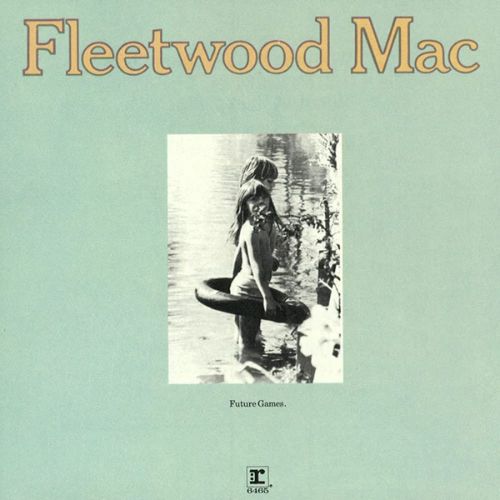
Tracks
- Woman of 1000 Years
- Morning Rain
- What a Shame
- Future Games
- Sands of Time
- Sometimes
- Lay It All Down
- Show Me a Smile
“Future Games,” the fifth studio album by Fleetwood Mac, was released on September 3, 1971. It marked a significant transition for the band, as it was the first to feature Christine McVie as a full member and introduced American guitarist Bob Welch to the lineup. Recorded at Advision Studios in London during the summer of 1971, the album showcased Welch’s unique R&B and jazzy influences, adding a fresh dimension to the band’s sound. While it peaked at number 91 on the US Billboard 200 chart in December 1971, “Future Games” later achieved gold certification from the RIAA in 2000, highlighting its enduring impact and influence on Fleetwood Mac’s musical journey.
7. Bare Trees (1972)
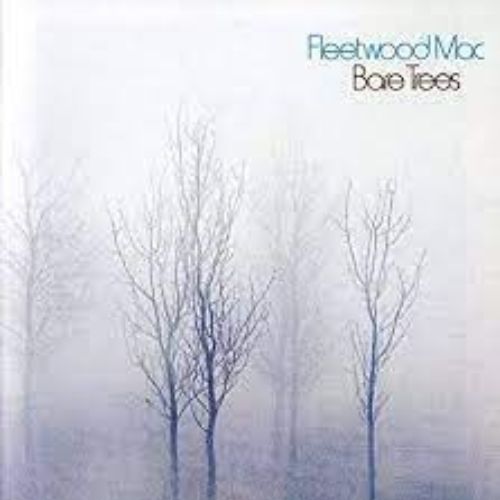
Tracks
- Child of Mine
- The Ghost
- Homeward Bound
- Sunny Side of Heaven
- Bare Trees
- Sentimental Lady
- Danny’s Chant
- Spare Me a Little of Your Love
- Dust
- Thoughts on a Grey Day
“Bare Trees,” the sixth studio album by Fleetwood Mac, marked a pivotal moment in the band’s history when it was released in March 1972. Notably, it was the last record to feature Danny Kirwan, who was later fired during the supporting tour. While it initially peaked at number 70 on the US Billboard Top LPs & Tape chart, the album gained enduring recognition, achieving platinum certification from the RIAA in 1988. Mick Fleetwood acknowledged Kirwan’s significant contributions, particularly his studio expertise and layering techniques, making “Bare Trees” a testament to the band’s evolving sound and the end of an era in their musical journey.
8. Penguin (1973)
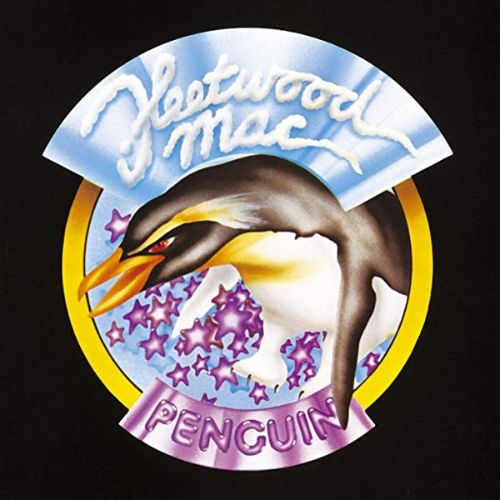
Tracks
- Remember Me
- Bright Fire
- Dissatisfied
- (I’m a) Road Runner
- The Derelict
- Revelation
- Did You Ever Love Me
- Night Watch
- Caught in the Rain
“Penguin,” the seventh studio album by Fleetwood Mac, released on March 1, 1973, holds a unique place in the band’s discography. This album marked a significant transition for the group as it was the first to follow the departure of Danny Kirwan and introduced new members Bob Weston and Dave Walker. The album is also distinguished by its namesake, the penguin, a beloved mascot of bassist John McVie. His affinity for these birds traces back to his early married life near London Zoo, where he spent hours studying and observing penguins. “Penguin” not only symbolizes a changing lineup but also the personal interests of one of the band’s core members.
9. Mystery to Me (1973)
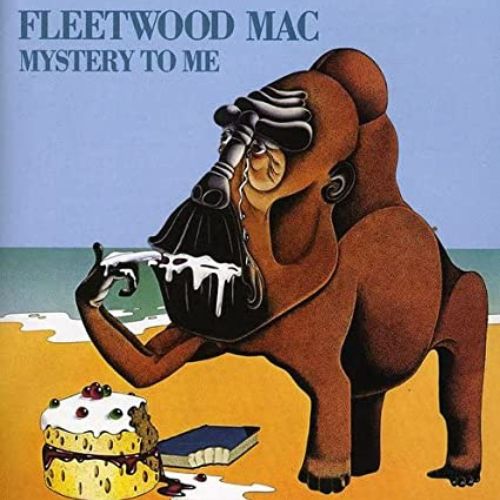
Tracks
- Emerald Eyes
- Believe Me
- Just Crazy Love
- Hypnotized
- Forever
- Keep On Going
- The City
- Miles Away
- Somebody
- The Way I Feel
- For Your Love
- Why
“Mystery to Me,” the eighth studio album by Fleetwood Mac, released on October 15, 1973, marked the end of an era with the departure of Bob Weston. Featuring songs predominantly written by Bob Welch and Christine McVie, the album showcased their transition towards radio-friendly pop-rock, a sound that would propel the band to greater success in the years to come. Although the album reached a modest peak at number 67 on the US Billboard 200 chart in December 1973, the track “Hypnotized” gained enduring popularity on American FM radio. In retrospect, with the success of the Buckingham/Nicks era, the album achieved RIAA gold certification in 1976.
10. Heroes Are Hard to Find (1974)
Tracks
- Heroes Are Hard to Find
- Coming Home
- Angel
- Bermuda Triangle
- Come a Little Bit Closer
- She’s Changing Me
- Bad Loser
- Silver Heels
- Prove Your Love
- Born Enchanter
- Safe Harbour
“Heroes Are Hard to Find,” the ninth studio album by British-American rock band Fleetwood Mac, was released on September 13, 1974. Notably, it marked the final album with guitarist Bob Welch, who departed at the end of the year. The album’s recording was a turbulent period for the group, with interpersonal conflicts leading to temporary disbandment and legal issues. Despite the absence of a successful single, the album reached No. 34 on the Billboard 200 chart, the highest placement for Fleetwood Mac at the time. Welch later re-recorded several tracks from the album in subsequent projects, including “Angel,” “Bermuda Triangle,” and “Silver Heels.”
11. Fleetwood Mac (1975)
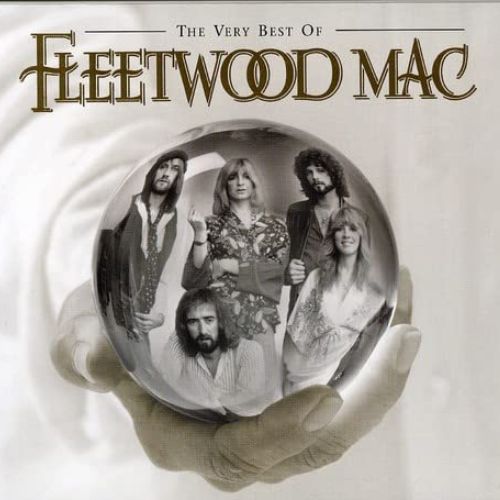
Tracks
- Monday Morning
- Warm Ways
- Blue Letter
- Rhiannon
- Over My Head
- Crystal
- Say You Love Me
- Landslide
- World Turning
- Sugar Daddy
- I’m So Afraid
Fleetwood Mac’s eponymous tenth studio album, released on July 11, 1975, marked a pivotal moment in the band’s history. This album, often referred to as the ‘White Album’ by fans, introduced Lindsey Buckingham as the guitarist and Stevie Nicks as the vocalist, following Bob Welch’s departure in late 1974. It reached the pinnacle of the US Billboard 200 chart in September 1976, spawning hit singles like “Over My Head,” “Rhiannon,” and “Say You Love Me.” The album’s immense success was highlighted by its seven times platinum certification from the RIAA, with sales exceeding seven million copies. It laid the groundwork for a series of chart-topping albums in the UK, solidifying Fleetwood Mac’s legendary status.
12. Rumours (1977)
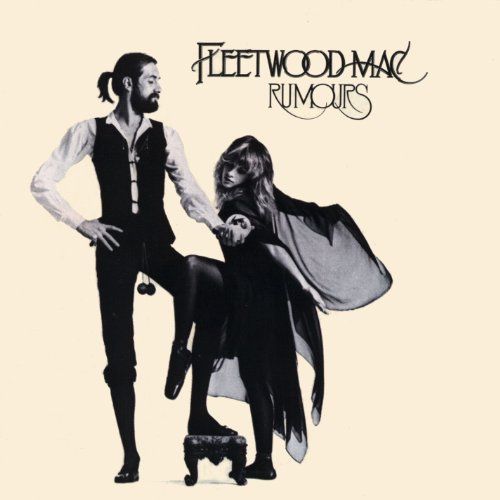
Tracks
- Second Hand News
- Dreams
- Never Going Back Again
- Don’t Stop
- Go Your Own Way
- Songbird
- The Chain
- You Make Loving Fun
- I Don’t Want to Know
- Oh Daddy
- Gold Dust Woman
“Rumours,” the eleventh studio album by the iconic British-American rock band Fleetwood Mac, released on February 4, 1977, stands as a monumental musical achievement. Recorded during a tumultuous period marked by relationship breakups and heavy drug use among the band members, the album was produced in California with a mix of electric and acoustic instrumentation, creating a unique sound. It delivered hit singles like “Go Your Own Way,” “Dreams,” “Don’t Stop,” and “You Make Loving Fun,” all reaching the US top 10.
Instantly embraced by fans and critics, “Rumours” sold over 10 million copies worldwide within a month and won Album of the Year at the 1978 Grammy Awards. Its enduring legacy includes over 40 million copies sold globally, numerous accolades, and a revered position in music history. It remains one of the greatest albums of all time, celebrated for its harmonious vocals and lasting influence.
13. Tusk (1979)
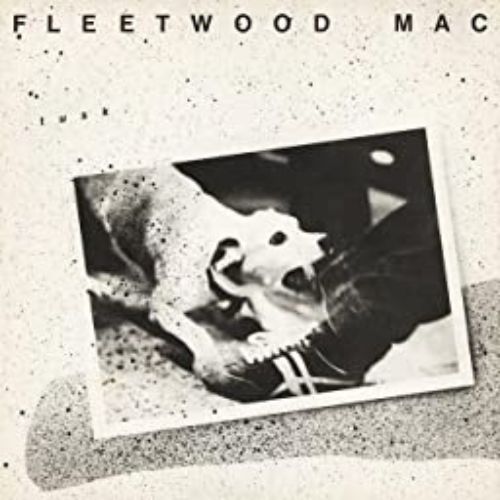
Tracks
- Over & Over
- The Ledge
- Think About Me
- Save Me a Place
- Sara
- What Makes You Think You’re the One
- Storms
- That’s All for Everyone
- Not That Funny
- Sisters of the Moon
- Angel
- That’s Enough for Me
- Brown Eyes
- Never Make Me Cry
- I Know I’m Not Wrong
- Honey Hi
- Beautiful Child
- Walk a Thin Line
- Tusk
- Never Forget
“Tusk,” the twelfth studio album by Fleetwood Mac, released on October 12, 1979, marked a departure from their previous works, characterized by its experimental and post-punk influence. The double album came with a hefty price tag, initially estimated at $1 million but later revealed to be $1.4 million, making it the most expensive rock album recorded at the time. The band embarked on an extensive nine-month tour spanning the globe. Despite its commercial performance falling short of the blockbuster “Rumours,” “Tusk” has gained critical acclaim, with NME ranking it among the “500 Greatest Albums of All Time” and its inclusion in “1001 Albums You Must Hear Before You Die” and other notable lists.
14. Mirage (1982)
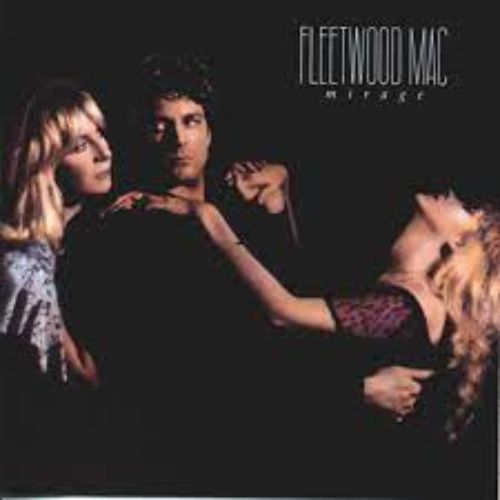
Tracks
- Love in Store
- Can’t Go Back
- That’s Alright
- Book of Love
- Gypsy
- Only Over You
- Empire State
- Straight Back
- Hold Me
- Oh Diane
- Eyes of the World
- Wish You Were Here
Mirage, the thirteenth studio album by Fleetwood Mac, marked a departure from their experimental sound of ‘Tusk.’ Released on July 2, 1982, by Warner Bros. Records, it embraced a softer rock style. The album spawned several hit singles, including ‘Hold Me,’ which reached number four on the US Billboard Pop Chart, ‘Gypsy’ at number 12, ‘Love in Store’ at number 22, and ‘Oh Diane’ at number nine in the UK. ‘Can’t Go Back’ also charted in the UK at number 83. Mirage showcased the band’s versatility and contributed to their enduring success in the music industry.
15. Tango in the Night (1987)
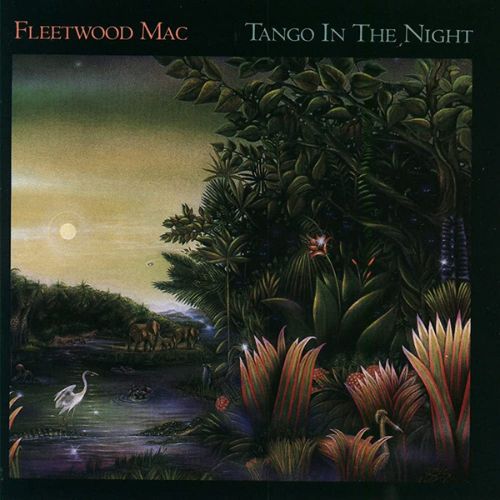
Tracks
- Big Love
- Seven Wonders
- Everywhere
- Caroline
- Tango in the Night
- Mystified
- Little Lies
- Family Man
- Welcome to the Room… Sara
- Isn’t It Midnight
- When I See You Again
- You and I, Part II
“Tango in the Night,” Fleetwood Mac’s fourteenth studio album, was released on April 13, 1987. This album marked a significant transition for the band as it became their final studio record with the iconic lineup of Lindsey Buckingham, Mick Fleetwood, Christine McVie, John McVie, and Stevie Nicks, as Buckingham departed later that year. Initially conceived as one of Buckingham’s solo projects, it evolved into a Fleetwood Mac production. The album spawned several hit singles, including “Big Love,” “Seven Wonders,” “Little Lies,” and “Everywhere.” While “Tango in the Night” received critical acclaim and sold over 15 million copies worldwide, it remains a testament to the band’s enduring musical legacy.
16. Behind the Mask (1990)
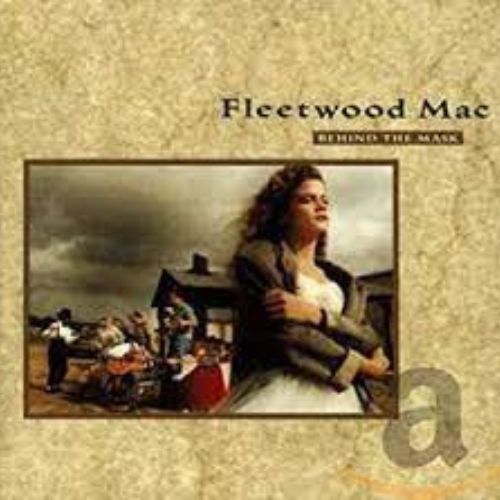
Tracks
- Skies the Limit
- Love Is Dangerous
- In the Back of My Mind
- Do You Know
- Save Me
- Affairs of the Heart
- When the Sun Goes Down
- Behind the Mask
- Stand on the Rock
- Hard Feelings
- Freedom
- When It Comes to Love
- The Second Time
“Behind the Mask,” Fleetwood Mac’s fifteenth studio album, debuted on April 9, 1990, following the departure of guitarist Lindsey Buckingham. This marked a transformation for the band, as Billy Burnette and Rick Vito replaced Buckingham, creating a six-piece ensemble with four singer-songwriters. While it didn’t match the success of its predecessor, “Tango in the Night,” the album entered the UK Albums Chart at number 1 and achieved platinum status in the UK. The cover art, symbolizing the band’s spirit, earned a Grammy nomination. Notable tracks include “Save Me” and “Freedom,” co-written by Stevie Nicks and Mike Campbell of Tom Petty and the Heartbreakers, who later joined the band in 2018.
17. Time (1995)
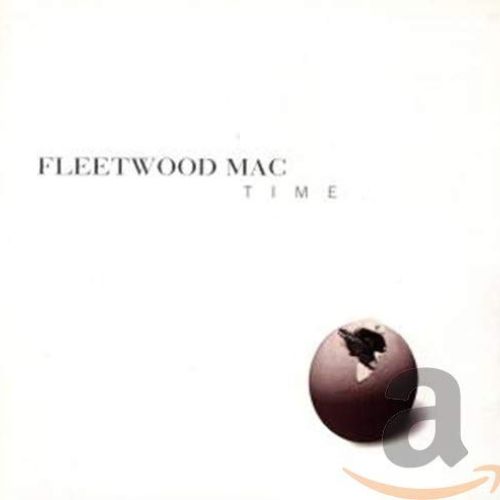
Tracks
- Talkin’ to My Heart
- Hollywood (Some Other Kind of Town)
- Blow by Blow
- Winds of Change
- I Do
- Nothing Without You
- Dreamin’ the Dream
- Sooner or Later
- I Wonder Why
- Nights in Estoril
- I Got It in for You
- All Over Again
- These Strange Times
“Time,” the 16th studio album by Fleetwood Mac, was released on October 10, 1995, marking a departure from the band’s classic lineup. Featuring Bekka Bramlett and Dave Mason, it was the first album without Lindsey Buckingham, who only provided backing vocals on one track, and the last to exclude Stevie Nicks. This shift resulted in unfavorable reviews and commercial disappointment, failing to chart in the US and reaching number 47 in the UK. “Time” is also notable for being Christine McVie’s final studio album as an official member, marking the end of an era for the iconic rock band.
18. Say You Will (2003)
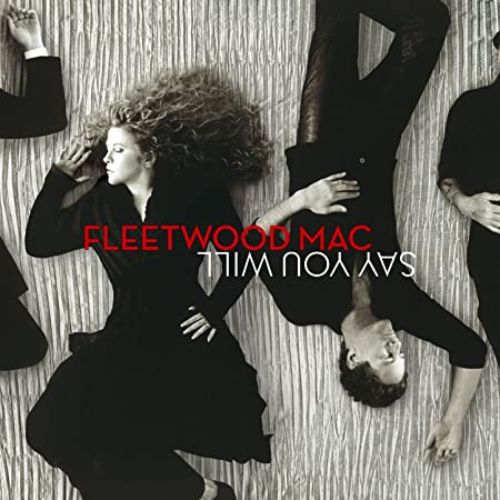
Tracks
- What’s the World Coming To?
- Murrow Turning Over in His Grave
- Illume (9-11)
- Thrown Down
- Miranda
- Red Rover
- Say You Will
- Peacekeeper
- Come
- Smile at You
- Running Through the Garden
- Silver Girl
- Steal Your Heart Away
- Bleed to Love Her
- Everybody Finds Out
- Destiny Rules
- Say Goodbye
- Goodbye Baby
“Say You Will,” the seventeenth studio album by Fleetwood Mac, was released on April 15, 2003. This marked a pivotal moment for the band, as it was the first album since 1970 without vocalist/keyboardist Christine McVie as a full member. Lindsey Buckingham took on primary keyboard duties, and Christine McVie participated as a guest musician. The album was their last with Buckingham before his dismissal in 2018. It achieved notable success, peaking at No. 3 in the US and No. 6 in the UK. The limited edition featured bonus tracks and additional content, making it a significant release in the band’s catalog.
Thanks for Visit!
